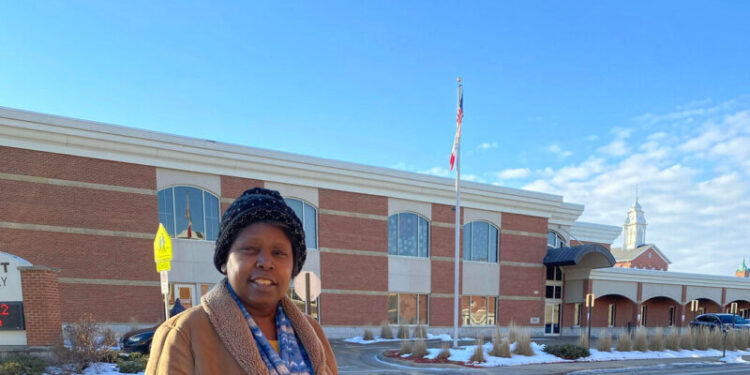This conversation has been edited and condensed.
Ms. Sutton says it is difficult to acquire a plot of land to grow fruits and vegetables in downtown Dubuque, where food deserts are prevalent.Credit…Ashley Nesises
What influenced you to become an activist urban farmer?
My parents often had us visit a friend’s farm; we learned a lot. Then, as I got older, I started looking more to growing my own food, especially because I couldn’t find anything here that I was accustomed to eating. At my old apartment, there wasn’t room to grow anything except in containers. And then a co-worker of mine offered me some rows in her garden. It was always difficult to find room in the city. If I’m having this problem, then other people are having this problem. The food insecurity, you have to look at it like food injustice.
What nontraditional vegetables do you grow and why?
Vegetables like okra and other varieties that I don’t see here. With climate change, I’ve started growing items that aren’t zoned for our area, like bitter melon, which is more of an Asian/Indian gourd. It’s zoned for a 9, which is more tropical, and Iowa is zoned at a 5. I sold the bitter melon gourd at the farmers’ market. All my stuff was sold in two hours. It was really an eye-opener, because people are looking for different foods. A woman from India came up to me at the farmers’ market and had her granddaughter ask me about okra. I talked to them about how I like to cook okra and make it crispy. I thought to myself, “Isn’t this something? This woman doesn’t speak English, but we came together on this.” I think people forget that our demographics change.
How can urban farming help solve food deserts — those areas with limited access to affordable and nutritious food?
It will provide access to those fruits and vegetables not always readily available. Economicswise, a package of lettuce seeds is $1, $2, but look how much more you get from it. Similarly, if you plant onions, garlic, anything, it’s readily available. Sometimes it’s not that people don’t want to feed their family healthily; it comes down to economic choices. It’s fine to have all of these free meal sites, but what’s there all the time to help people?
Unfortunately, city ordinances prevented goats, chickens and even composting at times. Do you think our city currently helps or hurts urban farming?




















